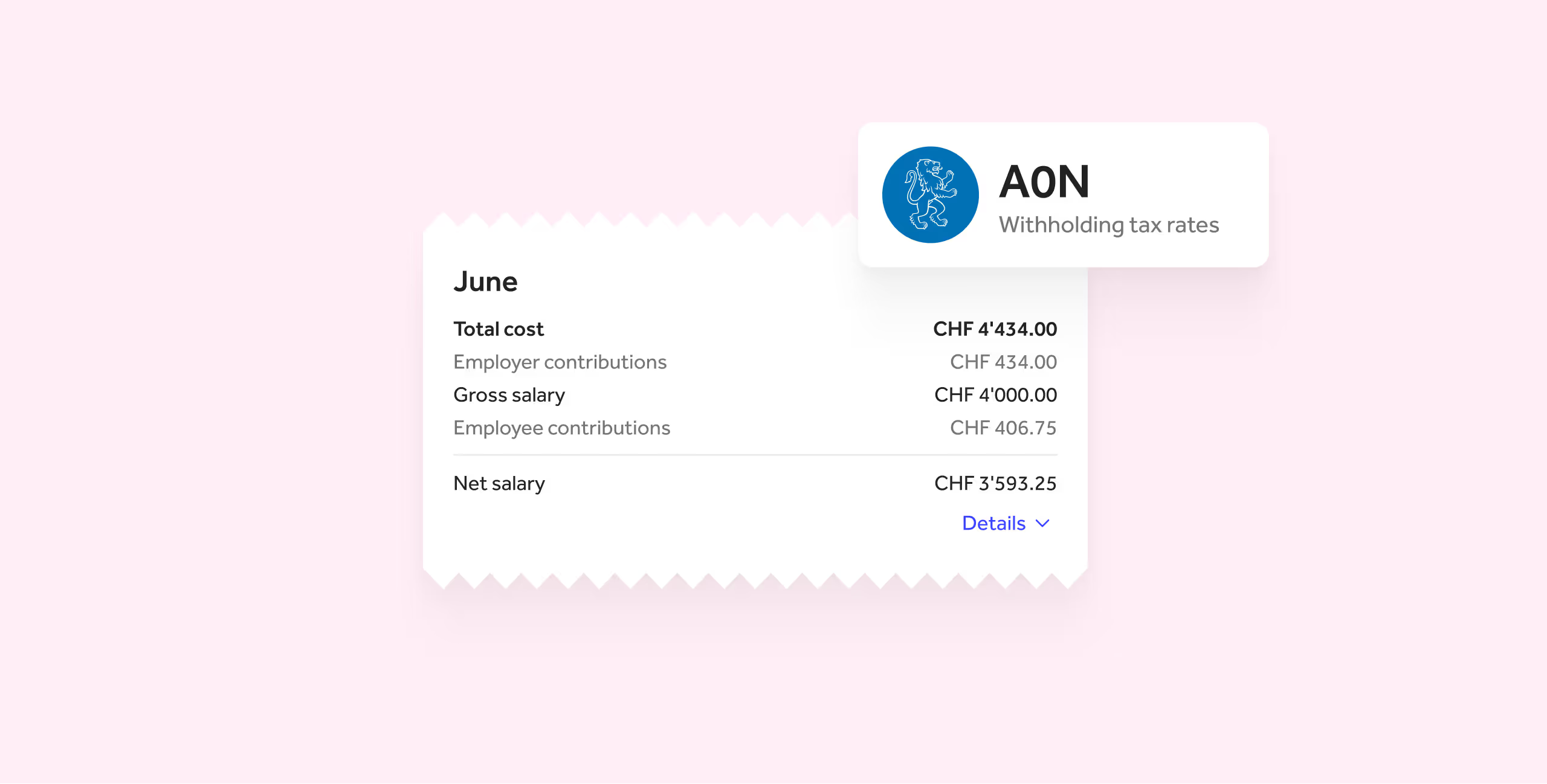
Understanding Withholding Tax in Switzerland
Withholding tax in Switzerland: rules, tax codes, registration, deduction and billing. quitt Business takes care of the complete administration for you.

Withholding tax is an income tax deducted directly from employees’ salaries each month. The employer is responsible for withholding and transferring the amounts to the competent cantonal tax authority.
Who is subject to withholding tax?
In general, employees are subject to withholding tax if they do not have Swiss nationality and do not hold a C permit.
The main residence permits concerned are:
- Permit B EU/EFTA – residence permit
- Permit Ci EU/EFTA – residence permit with gainful employment
- Permit G EU/EFTA – cross-border commuter permit
- Permit L EU/EFTA – short-term residence permit
How is it deducted?
The employer deducts the withholding tax directly from the employee’s salary and pays it to the tax authority of the employee’s canton of residence.
The company is obliged to:
- register employees subject to withholding tax with the canton of residence,
- use the assigned withholding tax number when submitting monthly payments.
Commission for employers
Since companies collect and transfer withholding tax, cantons allow them to retain a commission for administrative costs.
Example: If a 2% commission is allowed and you collect CHF 1,000 in withholding tax, you remit only CHF 980 and keep CHF 20.
Withholding tax codes
Each employee subject to withholding tax is assigned a 5-character tax code, based on:
- marital status
- number of children
- payment of church tax (yes/no)
- canton of residence
Example: An employee in Zurich, single, with one child, and opting to pay church tax → Code ZHA1Y.
Effect of family status
Family status determines part of the code:
- A = single
- B = married, one income
- C = married, two incomes
- H = single with dependent children or relatives
- M/N = married, living in Germany, working in Switzerland (one or two incomes)
- R/S/T = living in Italy, working in Ticino (various scenarios)
Church tax
Payment of church tax is optional. Employees may choose to opt out even if they belong to a religious community.
Special cases
- Large families: Codes are capped at 9 children (even if more).
- Cross-border workers: Special codes apply to employees living in Italy, Germany, or France (e.g., tariff SF for cross-border commuters from France in certain cantons).
👉 The official withholding tax tables can be found on the Federal Tax Administration website: cantonal tax rates (in German).
How quitt Business supports you
Withholding tax management is complex and time-consuming. quitt Business takes care of the entire process for you:
- Registering employees with cantonal tax authorities
- Withholding and calculating monthly tax deductions
- Filing and transferring monthly payments
- Preparing payslips and salary certificates
- Integrating withholding tax with payroll and social security management
👉 This saves you time, avoids errors, and ensures compliance with Swiss tax regulations.
Conclusion
Withholding tax is a key part of Swiss taxation for many foreign employees.
With quitt Business, withholding tax is handled automatically, accurately, and transparently.
Wages, declarations, insurance, payments: We take care of everything from A to Z. No paperwork, no surprises.
Learn more
The complete starter package with all documents: employment contract, team contract, expense regulations and employment checklist
Download for free
Calculate the wage costs of your employees with our free payroll calculator.
Calculate payroll deductions
